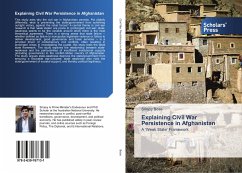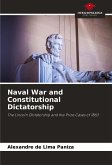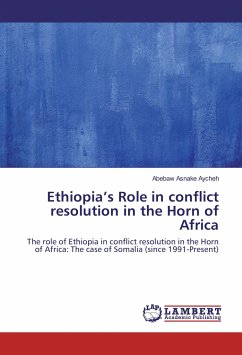This study asks why the civil war in Afghanistan persists. Put slightly differently, what is preventing the state/government from achieving outright victory, against the rebel forces? A central theme in civil war research is that 'weak states' are prone to (prolonged) civil war; state-weakness seems to be the variable around which there is the most theoretical agreement. There is a strong sense that state failure -- whether defined as failure to monopolize legitimate violence or failure to deliver development, good governance and basic services -- is a principal driver of contemporary civil conflicts, often resulting in prolonged crises. In investigating the puzzle, this study tests the weak state framework. The study explores the relationship between state-weakness and the particularities of insufficient institutional capacity (including governance) in the conflict-ridden country of Afghanistan. The study argues state-weakness deprives the state/government from ensuring a favorable war-outcome; state weakness also robs the state/government of societal support, and thereby political legitimacy.
Bitte wählen Sie Ihr Anliegen aus.
Rechnungen
Retourenschein anfordern
Bestellstatus
Storno








